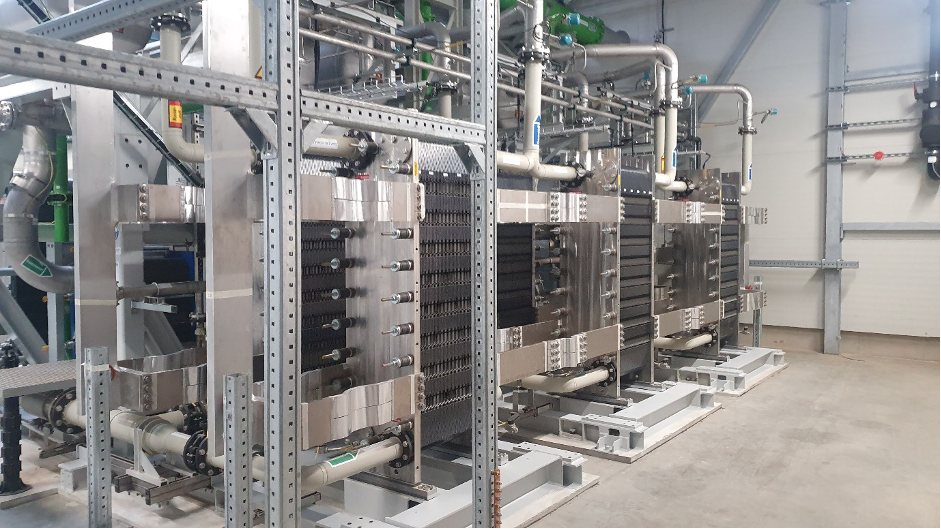
The shift towards a green hydrogen economy is expensive – experts expect investments of more than a dozen of trillion euros from now to 2050. It is obvious that no country in the world can handle this unprecedented challenge by itself. The need for cooperation manifests itself more and more often in hydrogen partnerships that can cover research, development, regulation, pilot projects or even agreements about traded hydrogen volume.
The Nordics have the Nordic Hydrogen Partnership. UK and South Africa launched a hydrogen cooperation last December. Germany cannot get enough of hydrogen partnerships and initiated them amongst others with Angola, Arabia, Australia, Canada, Chile, Japan, Namibia, Nigeria and South Africa. The list is long and could be continued: hydrogen partnerships are on everyone’s lips.
MERE PARTNERSHIP ANNOUNCEMENTS ARE OFTEN NOT WORTH THE PAPER THEY ARE WRITTEN ON
As we all know from our private lives, a partnership can mean pretty much anything. Just the announcement of a partnership often is not worth the paper it is written on. Hydrogen partnerships become interesting as soon as money is put on the table – particularly true if the partnership is closed between uneven partners: richer and poorer countries, potential exporting and importing countries.
This money can be for research and development, education and training, harmonisation of legislation, or specific projects and scaling up programmes. For the latter, Germany proposes and interesting approach: double-sided auctions for green hydrogen and hydrogen derivatives.
AN AUCTION MANY HYDROGEN PLAYERS WON’T BE ABLE TO RESIST
In December, Germany launched a 900-million-euro support of auction schemes for green hydrogen and power-to-X (PtX) imports. The German government supports the purchase of hydrogen on the world market from non-EU countries at the lowest price with auctions via 10-year purchase agreements. With a second auction series the hydrogen is then sold to the highest bidder within the EU – at a lower price and on the basis of shorter-term contracts.
The price difference will be compensated by an H2 Global investment vehicle. H2 Global is a foundation set up by mainly German players such as Siemens Energy, ThyssenKrupp, Linde, VNG or Deutsche Bank for accelerating the ramp up of green hydrogen. H2 Global’s investment vehicle received the 900-million-euro support from the German government.
GREEN HYDROGEN AUCTIONS: SELL WHATEVER YOU WANT?
The auction approach must stick to strict rules in order to be successful. The main point to mention here is the nature of hydrogen and its derivatives. To justify spending taxpayer’s money, it must be ensured that the auctions are catalysts for accelerating our move towards a hydrogen economy. Most experts agree that the colour of hydrogen should be green – in the future also the economically most viable solution as costs of green hydrogen will keep on decreasing.
It is important to really focus the efforts on green hydrogen and ensure that no taxpayers’ money is used to establish a transition technology such as blue hydrogen (based on natural gas – but with carbon capture and storage). Technology-wise there is no overlap between green and blue hydrogen generation. Every euro invested in blue hydrogen is a euro lost for leveraging the experience curve effect of green hydrogen.
TRANSPORTATION OF HYDROGEN
Hydrogen will be transported from overseas as liquified gas in large special hydrogen tankers. This is similar to what we know from LNG, but not the same as LNG remains liquid at “only” -161.5°C while hydrogen requires - 252.8°C. That means that transportation costs for hydrogen are much bigger than for LNG. From a European perspective a ton of hydrogen in Australia is worth significantly less than in Morocco. This must also be reflected to some extent in hydrogen auctions – for example by considering prices delivered to Europe.
In an ideal well-functioning market for hydrogen similar to the electricity markets, delivery distances could no longer be a problem. The purchaser would not receive hydrogen molecules generated in the facility with which the contract is signed, but actual deliveries would optimise hydrogen transportation.
NO RISK, NO REWARD
Many developing countries might see in green hydrogen the new oil, but there are also risks that need to be addressed. To quickly bring costs down many hydrogen players think big. So big that new hydrogen plants could make up for a substantial part of the national GDP and create dependencies. Like for mining, it is important to select the right international partner companies and to come up with a suited framework regulation. Although we talk about renewable energy-based hydrogen as green, one aspect is tricky and often overlooked: water. By exporting hydrogen, a country is also indirectly allowing the export of the water needed for the electrolysis process. In many countries, water desalination must play a major role in the future for green hydrogen production.
Recommended links:
- https://www.irena.org/Publications/2022/Sep/Breakthrough-Agenda-Report-2022
- https://www.iea.org/reports/global-hydrogen-review-2021
About the author:
Dr Thomas Hillig is managing director of THEnergy, a boutique consultancy specialised in innovations for the energy sector. The consulting focus is mainly on microgrids, energy storage, hydrogen and decarbonization for commercial & industrial clients.
Disclaimer: This article is a contribution from a partner. All rights reserved.
Neither the European Commission nor any person acting on behalf of the Commission is responsible for the use that might be made of the information in the article. The opinions expressed are those of the author(s) only and should not be considered as representative of the European Commission’s official position.
RELATED ARTICLES:
➔ Green hydrogen to de-risk the energy transition
➔ EEMI Bauhaus: 'Combining smart digital & sustainable solutions to change the market paradigm'
➔ Dispatchable power generation at sea – proposal for a next step in system integration
Details
- Publication date
- 7 February 2023
- Author
- European Climate, Infrastructure and Environment Executive Agency
